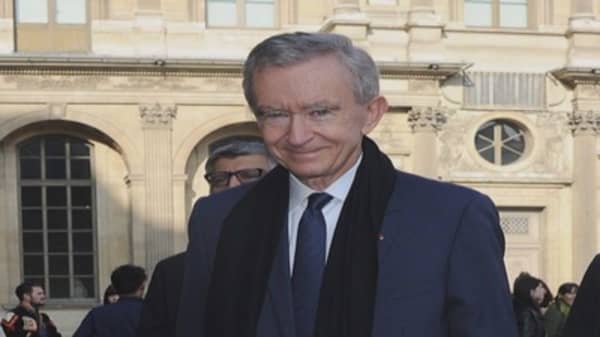Chairman and CEO, LVMH
Born: March 5, 1949, Roubaix, France
Education: Degree in engineering, École Polytechnique
Bernard Arnault converted the uneasy merger of Moët Hennessy and Louis Vuitton in the mid-80s into the world's most successful luxury goods group, LVMH, which had sales of $39 billion last year. Its 60 brands comprise wines and spirits, fashion and leather goods, perfume and cosmetics, and watches and jewelry, with names including Louis Vuitton, Thomas Pink, TAG Heuer and Dom Pérignon Champagne.
Though his direct share of LVMH is less than 7 percent, Arnault controls the holding through his family's ownership of fashion house Christian Dior, which owns 40.9 percent of LVMH. That gives him a 46.5 percent stake, according to LVMH's annual report. Bloomberg estimates Arnault's worth at $32.6 billion.









































